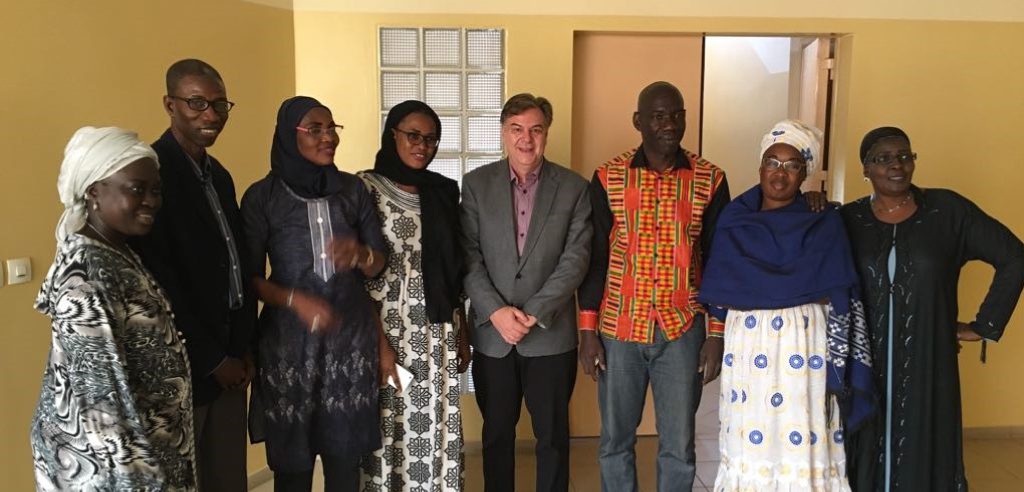
To discuss the World Food Programme’s school feeding policy framework, 70 representatives from WFP country offices and regional bureau gathered in Dakar to participate in the Home-Grown School Feeding Strategic Meeting. On 31 January and 1 February, participants discussed how WFP’s policy framework is reflected by the regional and country level experiences, priorities, challenges and best practices and the prospects for the way forward.
The WFP Centre of Excellence opened the event presenting highlights from its partnership with national governments, policy dialogue processes and the Global Child Nutrition Forum. Participants from provided an overview of the school meals and home-grown school feeding initiatives in their respective regions, focusing on the challenges, lessons learned, innovative approaches, and the way forward.
Context
National governments across different regions have been showing increasing interest for home grown school feeding initiatives, especially because of the cross-cutting impacts of these programmes and the potential synergies with other social protection initiatives at national level. One example of this growing interest is the decision by the African Union to adopt school feeding as a continental strategy to promote sustainable development.
Within the implementation of the Continental Education Strategy for Africa (CESA), the African Union indicated the creation of a school feeding cluster to monitor the implementation of the recommendations made by the “Sustainable school feeding across the African Union” study. This study, conducted by the WFP Centre of Excellence and the WFP Africa Office, provides an overview on the benefits, challenges and lessons learned from school feeding initiatives in the African continent.
WFP
WFP has renewed its attention to school meals and home-grown school feeding, with increased focus on capacity strengthening approaches and inter-sectoral coordination. It is a critical moment for WFP to capitalize on the lessons learned and best practices across different regions to strongly position itself in support of national school meal programmes.
“One great lesson that I learned during the last seven years working to support governments to create sustainable school feeding programmes is that we need to listen more to government leaders”, said Daniel Balaban, director of the WFP Centre of Excellence against Hunger. “Government leaders know the best solutions. We just need to facilitate and support them in the process. Listen more, this is the secret”.
During the event, participants engaged in panel discussions on key cross-cutting issues, based on lessons learned and best practices at country level. Facilitated discussions took place around specific thematic areas to help improve the design, quality of programming and better explore the potential of school meals programmes.
The meeting was closed with a working session, in which the participants were divided into groups to discuss specific topics and devise concrete recommendations for the way forward.




